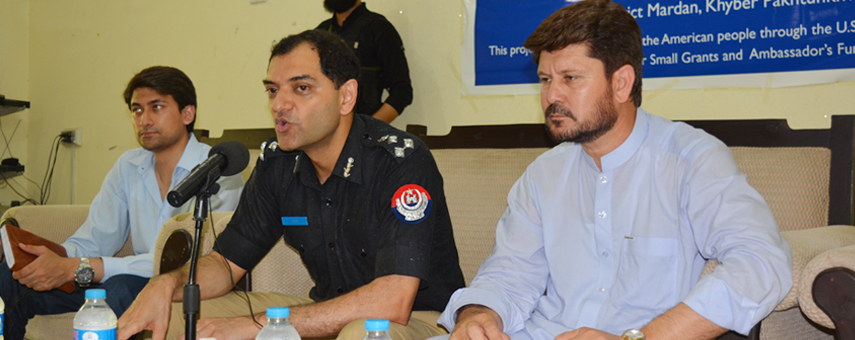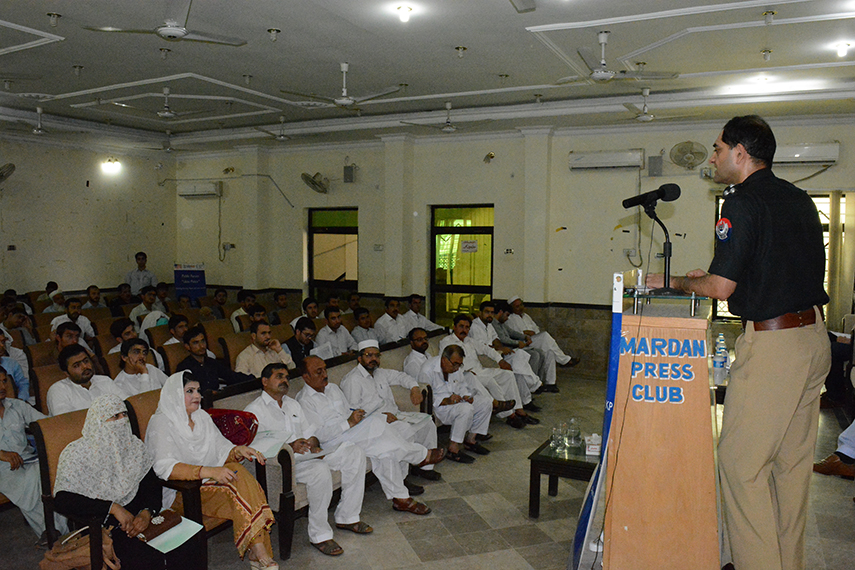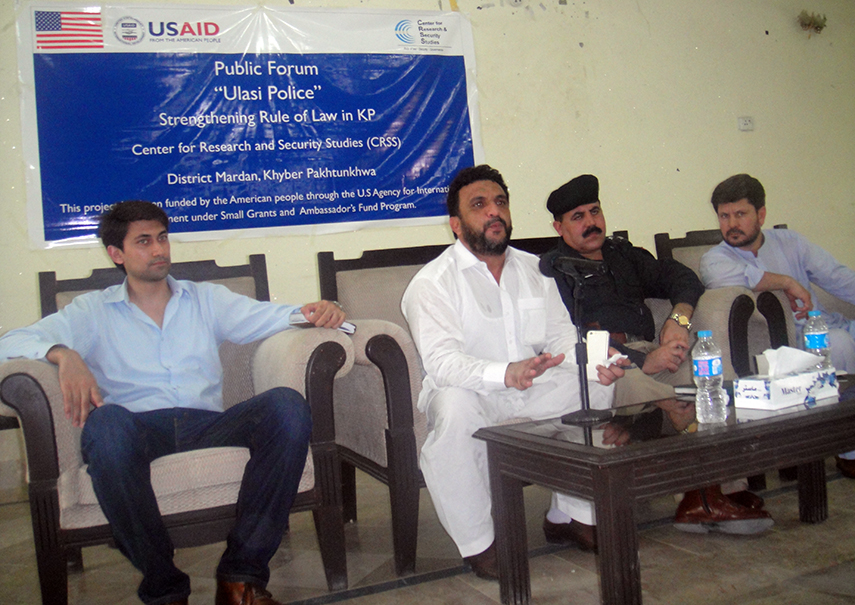The principles of rule of law dictate that every citizen in the society is treated equally regardless of the social, economic and political status. Rule of law requires a public-police partnership and collective roles and responsibilities of both in ensuring a peaceful society free of crimes and other havocs. The investment in the human capital is better than the material capital; thus the KP police has chosen investing on the trainings on and for behavioral changes and professional capacity building. Majority of the KP Police Reforms of community policing and modern tools are aimed at benefitting the common people. The community policing and the capacity building of police personnel have been the top considerations in reforms given that they can prove to be instrumental in reducing trust deficit between public and police.
These were the notions presented by the Deputy Inspector General of Police (DIG), Mardan, Mr. Mohammad Tahir Khan during a public forum on police reforms at press club, Mardan. The other speakers included Tehsil Naib Nazim, Mardan, Mr. Mushtaq Seemab and Senior Journalist, Mardan, Mr. Musarrat Aasi. The event was participated well by the members of community with diverse backgrounds including lawyers, local government representatives, media, academia and youth representatives. The forum was part of the project “Ulasi Police” an awareness and advocacy campaign undertaken by the Center for Research and Security Studies (CRSS) – as part of USAID Small Grants and Ambassadors’ Fund Program – to strengthen the rule of law in KP province by promoting and disseminating the significant police reforms aimed at incorporating local communities’ policing needs and international human rights standards. The endeavor aims to tackle the trust deficit between the public and police, help KP police become an accountable and community-focused police force.
Mr. Mohammad Tahir Khan, DIG Mardan Division said that the KP Police has taken several significant steps aimed at incorporating the policing needs of communities including Police Assistance Lines (PAL), Police Access Service (PAS), Dispute Resolution Council (DRC), Model Police Stations, Specialized Training Schools, Identity Verification System (IVS), Vehicle Verification System (VVS), Criminal Record Verification System (CRVS), Hotspot Policing (Geo Tagging), Online FIR, SOS Call Service, Complaint Against Police, Police Information Network (PIN), New Units Raised (Including Special Combat Unit (SCU), Rapid Response Force (RRF), Elite Women Commandos, Traffic Wardens Service, Public Liaison Council (PLC) as part of community policing initially for one year.
“A significant reduction in the crime rate has been observed during last few years due to reforms in KP Police. Fifty one percent decline in the crimes has been recorded in the Mardan division alone during the last year”, said the DIG while highlighting the importance of Dispute Resolution Council (DRC) which was the evolution of ‘Jirga’ as an essential part of Pasthun culture. “In Mardan, DRC has a success rate of whopping ninety one percent where five percent cases have been referred to courts and only four percent cases could not be resolved”.
Talking about the operational autonomy of police, he said that the KP Police was then ever more independent; comparing to the past years. On the structural reforms side, he said that the recruitment in the police was being done in a very transparent manner after the process has been linked to the clearance of NTS exams. The promotion system has also been revised and linked with the performance.
Mr. Mushtaq Seemab said that the advent of reforms in police augur well for the future of province but it requires a collective action and joint responsibilities of public and police. We have already started seeing the positive outcomes of reforms and it is hoped to improve further.
Mr. Musarrat Aasi said despite reforms, there was still a long way to go and a dire need to inform and aware the public of these reforms.
The presentation was followed by the open discussion – on some critical questions on Police Reforms – between the guest speakers and participants from the community.
The members of community unanimously endorsed the need for greater advocacy, awareness and propagation of these reforms – on the utilization and functioning of these initiatives – to the public. They conceded that there were improvements at the upper level in police department but a behavioral change was needed at all levels to improve the community-police relations.




